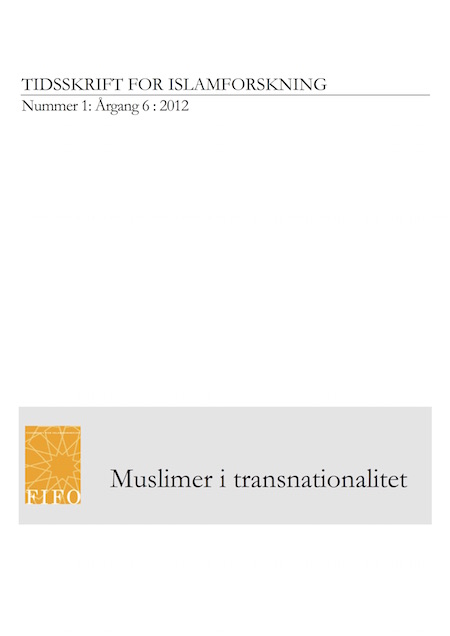Selvets teknologier, e-læring og neo-traditionel islamisk selvudvikling
DOI:
https://doi.org/10.7146/tifo.v6i1.25306Keywords:
islam, e-læring, selvudviklingAbstract
This article addresses the ways in which contemporary Muslims make use of the Internet to establish new kinds of communities of practice and learning associated with the technologies of the self and Islamic self-cultivation. Within the confines of the new communities the fundamental aspiration and ambition is similar to that of the classical tradition, but the non-physical framework simultaneously yields new possibilities and new challenges in regard to learning. The didacticaltheoretical point of departure of the analysis is above all the social psychological learning perspective developed by Lave and Wenger. The analysis is based on a representative example of elearning from the Islamic learning portal Sunnipath/Qibla and is especially related to the transnational and globally influential Bâ’alawiyya order, here construed as an exponent of a broader neo-traditional Islamic current. Patterns of learning and of learning within the confines of the ecommunity of practice are compared with more traditional and physically constituted contexts of situated learning through participation in intensified Islamic practices of self-cultivation. On the basis of observation, participation and interview material from both types of contexts the learning patterns of the new virtual communities of practice are analysed with an emphasis on presence and motivation in regards to learning.Downloads
Published
2017-02-04
How to Cite
Mathiesen, K. (2017). Selvets teknologier, e-læring og neo-traditionel islamisk selvudvikling. Scandinavian Journal of Islamic Studies, 6(1), 54–82. https://doi.org/10.7146/tifo.v6i1.25306
Issue
Section
Articles: Thematic section
License
Scandinavian Journal of Islamic Studies publish under creative commons license BY-NC-SA.





